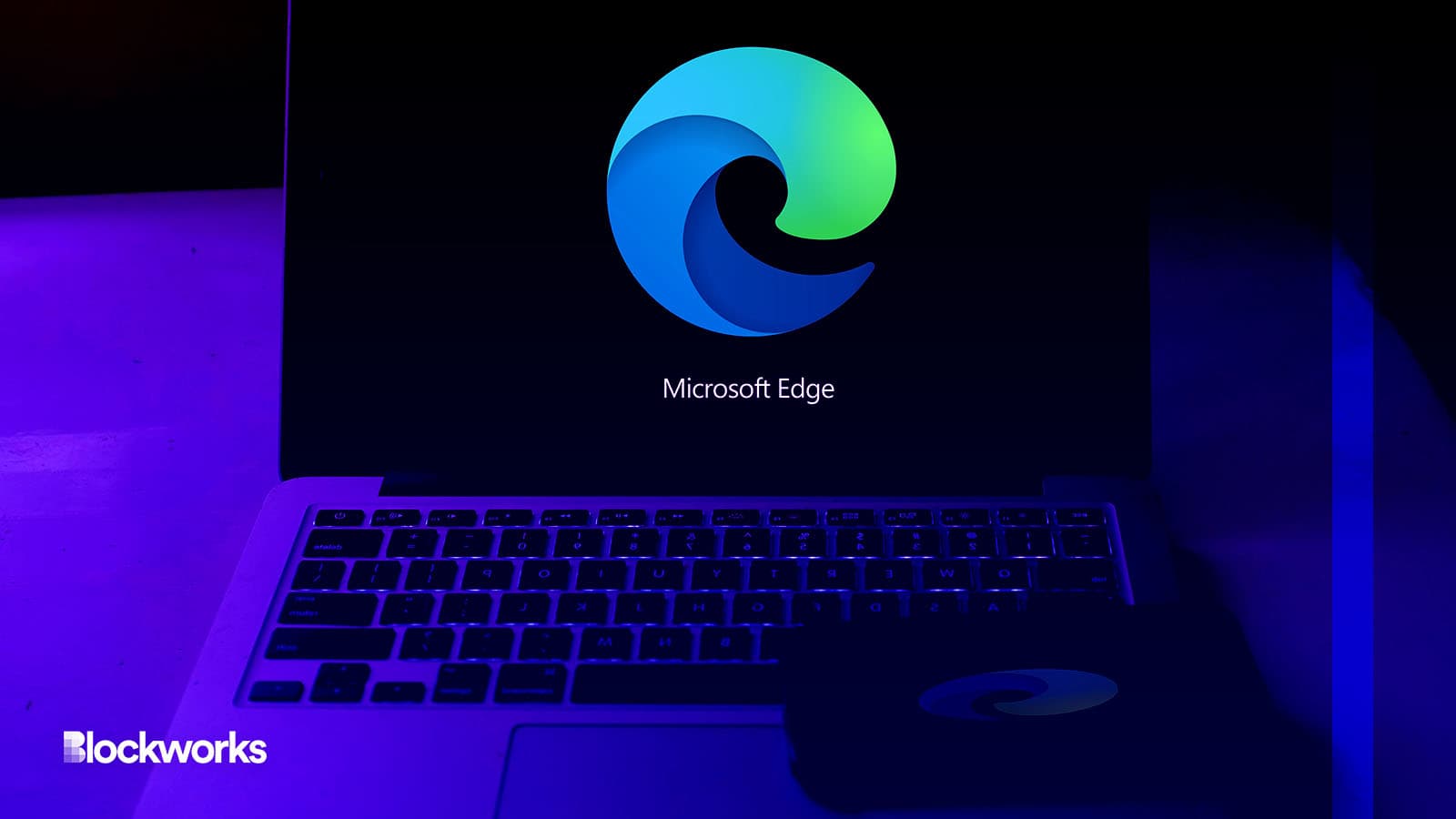Microsoft Edge Testing Built-In Ethereum Crypto Wallet, Screenshots Show
Reports of an impending Web3 wallet for the Edge browser comes a month after the tech giant wound down its metaverse unit

Source: Shutterstock / DANIEL CONSTANTE, modified by Blockworks
Microsoft is reportedly working on an Ethereum-based Web3 wallet for its flagship browser, allowing users to send and receive digital assets and NFTs.
The wallet is currently in a limited testing phase and is not yet available to the public, IT media outlet Bleeping Computer reported Friday.
First reported by Microsoft sleuth Albacore, who shared screenshots of the wallet on Twitter, Microsoft is asking “testers” via its Edge browser to put up their own assets.
“We encourage you to test our first Web3 wallet and provide candid feedback along the journey,” Microsoft said in one of the screenshots. “As the first testers, you have the unique opportunity to shape our foray into cryptocurrencies and NFTs.”
The wallet is non-custodial, meaning users are in control of their funds and the tech giant will not have access to their passwords or recovery keys. The wallet generates an Ethereum address that allows users to receive funds through the Ethereum network.
Users can also manage multiple Ethereum accounts and choose between the built-in Edge wallet or an extension.
Microsoft has partnered with Consensys to make available a swap feature supporting ETH, DAI, UNI, USDC, and USDT, according to Bleeping Computer.
Microsoft and Consensys did not immediately respond to requests for comment.
It remains to be seen if Microsoft will add support for other digital assets in the future.
According to Albacore, the wallet may launch soon.
“Enabling the crypto wallet ended up being less complex than I anticipated, which is also why I think that a launch might not be far away,” he told Blockworks.
According to the screenshots, the beta version of the wallet also features a news section to keep track of industry developments, which includes the ability to connect to decentralized apps.
Simon Kertonegoro, who previously helped usher in the implementation of a collaborative program between Microsoft and Enjin known as Azure Heroes, told Blockworks the tech giant’s Web3 wallet was a “savvy play” as it sought to “gain an upper hand” against rival Google Chrome.
“This would be amazing for us as users too, we’ll no longer need to input our credit card information every time we make a payment,” the founder of MyMetaverse said.
While the Edge crypto wallet is still in the testing phase, it could be a significant development for Microsoft, as it allows users to easily send and receive crypto without installing additional extensions or apps.
The move signals a pivot from its previous Web3 endeavors; Microsoft axed its metaverse unit in February, just four months after it had created a team tasked with building industrial networks.
Jane Ma, co-founder of zkLend, a layer-2 money-market protocol built on StarkNet, told Blockworks the emergence of Web3 technologies has spurred a growing trend of Web2 infrastructure companies looking to explore ways to integrate these decentralized solutions into their platforms.
“Microsoft’s prototype crypto wallet for its Edge browser is a prime example of this trend, as it aims to simplify the onboarding process for new users,” Ma said. “With a massive user base of over 200 million, Microsoft Edge’s approach of providing a ready-made, packaged solution within its browser would break down technical barriers,” she said.
Get the news in your inbox. Explore Blockworks newsletters:
- The Breakdown: Decoding crypto and the markets. Daily.
- 0xResearch: Alpha in your inbox. Think like an analyst.






